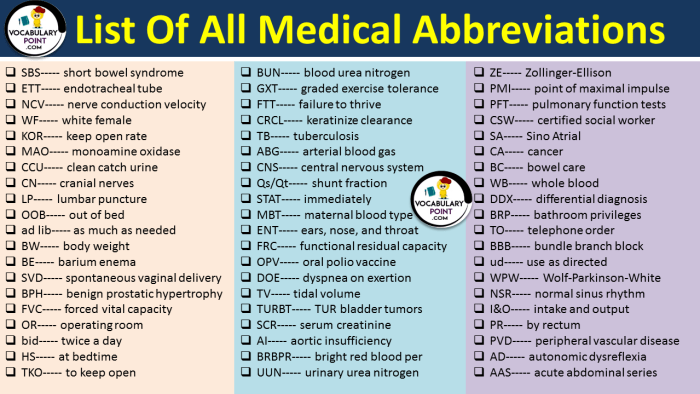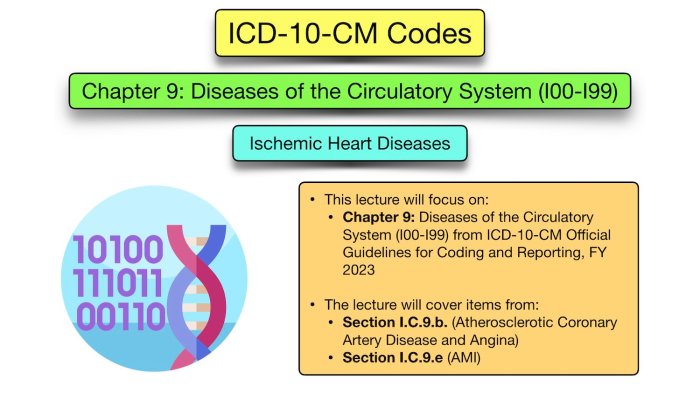As Sud medical abbreviation icd 10 takes center stage, this opening passage beckons readers with liputan6 author style into a world crafted with good knowledge, ensuring a reading experience that is both absorbing and distinctly original.
The SUD abbreviation, short for Substance Use Disorder, holds immense significance in the medical field, serving as a cornerstone for accurate documentation, effective communication, and optimal patient care. Its presence in the International Classification of Diseases, Tenth Revision (ICD-10) further underscores its critical role in healthcare delivery.
Definition and Overview

SUD (Substance Use Disorder) is a medical abbreviation that denotes a pattern of substance abuse that results in clinically significant impairment or distress. It is a comprehensive term that encompasses a wide range of substance-related conditions, from mild substance misuse to severe addiction.
The SUD abbreviation is used extensively in healthcare documentation to describe a patient’s substance use history and its impact on their health and well-being. It provides a concise and standardized way to communicate complex information about substance use, facilitating efficient and accurate record-keeping and communication among healthcare professionals.
Usage and Application

The SUD abbreviation is commonly used in the following contexts:
- Patient Assessments:SUD is recorded during patient assessments to gather information about the patient’s substance use history, including the type of substances used, frequency and quantity of use, and any associated problems or consequences.
- Diagnoses:SUD is used as a diagnostic label to describe a range of substance-related conditions, from mild substance use disorder to severe addiction. It is based on specific criteria Artikeld in the Diagnostic and Statistical Manual of Mental Disorders (DSM-5).
- Treatment Plans:SUD is used in treatment planning to guide interventions and therapies aimed at addressing the patient’s substance use and its consequences. It helps healthcare professionals develop tailored treatment plans that meet the individual needs of the patient.
ICD-10 Classification
SUD is included in the International Classification of Diseases, Tenth Revision (ICD-10), which is a widely used system for classifying diseases and health conditions. The following ICD-10 codes are associated with SUD:
| ICD-10 Code | Description |
|---|---|
| F10 | Mental and behavioral disorders due to use of alcohol |
| F11 | Mental and behavioral disorders due to use of opioids |
| F12 | Mental and behavioral disorders due to use of cannabinoids |
| F13 | Mental and behavioral disorders due to use of sedatives or hypnotics |
| F14 | Mental and behavioral disorders due to use of cocaine |
| F15 | Mental and behavioral disorders due to use of other stimulants, including caffeine |
| F16 | Mental and behavioral disorders due to use of hallucinogens |
| F17 | Mental and behavioral disorders due to use of volatile solvents |
| F18 | Mental and behavioral disorders due to use of multiple drugs and psychoactive substances |
| F19 | Mental and behavioral disorders due to use of other psychoactive substances |
Impact and Significance
SUD has a significant impact on medical practice and patient outcomes. It influences diagnosis, treatment decisions, and prognosis. Accurate SUD documentation is essential for effective healthcare delivery, as it provides healthcare professionals with a clear understanding of the patient’s substance use history and its potential impact on their health and well-being.
SUD can complicate medical conditions and increase the risk of developing other health problems, such as liver disease, cardiovascular disease, and mental health disorders. It can also interfere with medication adherence and treatment outcomes, making it crucial for healthcare professionals to address SUD as part of a comprehensive treatment plan.
Related Abbreviations

There are several other common medical abbreviations related to SUD, including:
- AUD:Alcohol Use Disorder
- OUD:Opioid Use Disorder
- CUD:Cannabis Use Disorder
- DUI:Driving Under the Influence
- DWI:Driving While Intoxicated
- AA:Alcoholics Anonymous
- NA:Narcotics Anonymous
Case Study Analysis
Case:A 35-year-old male patient presents to the emergency department with abdominal pain and nausea. He admits to drinking heavily over the past several days. His medical history includes a diagnosis of alcohol use disorder (AUD).
Analysis:The SUD abbreviation in this case is significant because it provides the healthcare team with a clear indication of the patient’s substance use history and its potential impact on his current symptoms. The documentation of SUD helps guide the diagnostic and treatment process, ensuring that the patient receives appropriate care for both his acute medical condition and his underlying substance use disorder.
Concluding Remarks: Sud Medical Abbreviation Icd 10
In conclusion, the Sud medical abbreviation icd 10 stands as a vital tool in the healthcare professional’s arsenal, enabling precise diagnosis, tailored treatment plans, and improved patient outcomes. Its integration into the ICD-10 classification system highlights its global relevance and the need for standardized documentation practices.
As the medical landscape continues to evolve, the SUD abbreviation will undoubtedly remain a cornerstone of effective healthcare communication and patient care.
User Queries
What is the purpose of the SUD abbreviation in healthcare?
The SUD abbreviation serves as a standardized way to document Substance Use Disorder diagnoses, ensuring accurate communication among healthcare providers and facilitating effective patient care.
How is the SUD abbreviation used in medical records?
The SUD abbreviation appears in patient assessments, diagnoses, and treatment plans, providing a concise and consistent way to indicate the presence of Substance Use Disorder.
What is the significance of SUD in the ICD-10 classification system?
The inclusion of SUD in the ICD-10 classification system underscores its global recognition as a legitimate medical condition, enabling standardized coding and data collection for research and public health initiatives.